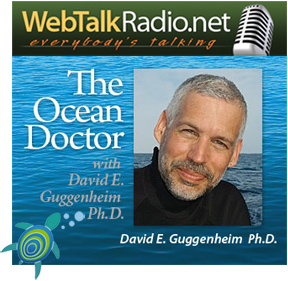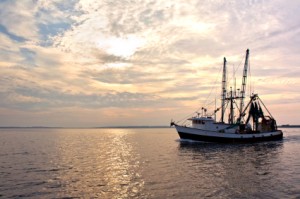1planet1ocean, a project of The Ocean Foundation, has focused its efforts on the Gulf of Mexico since its inception, drawing from decades of work protecting, restoring, researching and educating about the Gulf’s marine ecosystems, including South Florida and the Everglades, the Florida Keys and Florida Bay, deep-water treasures, such as Pulley Ridge, and Cuba’s magnificent coral reef ecosystems.
Since the explosion and sinking of the BP Deepwater Horizon, 1planet1ocean has been engaged on the front lines — in Washington, DC and in the field — leading efforts to minimize the damage from the spill, developing solutions to help the Gulf recover, and working to get the best information out to decision-makers and the public. Examples of our work include the following:
Protecting Cuba’s Marine Ecosystems
The catastrophic oil spill in the Gulf of Mexico from the BP Deepwater Horizon presents a potentially grave and unprecedented threat to Cuba’s marine life and coastal areas. Not only would this be devastating to Cuba’s marine life, but given the biological connections present in the Gulf of Mexico, such an impact could affect a myriad of species, including fish, sea turtles, dolphins, manatees, sharks, corals inhabiting the waters of the U.S., Mexico and beyond. ?Currents ?carry fish larvae from Cuba into U.S. waters, making protection of Cuba’s coastal ecosystems vital to the health of U.S. fish populations.
The primary risk to Cuba comes from the trajectory of the ?Loop Current,? a prominent but very variable feature of the Gulf of Mexico. Should the oil become swept up by the swift Loop Current, it could end up in Cuban waters within a matter of days, impacting coastal areas still recovering from the impacts of 2008 hurricanes, Gustav and Ike.
Sharing of information is central in this collaboration and since the scope of this disaster became evident, our collaboration has mobilized in order to provide our Cuban colleagues with the best information possible in order to plan for potential impacts and deal with them should they occur. A related page on this site has been set up for the purpose of sharing detailed information, including technical reports and satellite imagery and interpretation.
We’re working around the clock to help our Cuban colleagues prepare for the possibility of an oil spill from the BP Deepwater Horizon spill in the Gulf of Mexico. None of this work was anticipated, so we need your help to fund our efforts and ensure that we’re prepared in advance should the worst occur. Please help protect Cuba’s ecosystems from the oil spill by contributing to The Ocean Foundation’s Cuba Marine Research and Conservation Fund.
Solutions: Rebuilding the Gulf’s Shattered Fishing Industry — On Land
More than one third of federal Gulf waters are off limits to fishing, an area where NOAA considers fish and shellfish potentially too toxic for human consumption. For a region where commercial fishing is a vital part of the economy, the future of the region grows increasingly uncertain with each barrel of oil spewed into the deep Gulf waters.
There’s a solution: Rebuild the Gulf of Mexico fishery on land. Investing in ?next-generation? sustainable land-based, closed-containment recirculating aquaculture systems (RAS) could keep the Gulf region in the seafood business profitably, while creating green jobs and reducing fishing pressure on wild stocks. What is ?next-generation? RAS aquaculture? From the outside, many of the systems look like an ordinary warehouse. Inside, they?re a specially-constructed system of pumps and filters that recycle 99 percent of their water and grow healthy and heathful fish without chemicals, antibiotics or genetically-modified anything.
RAS systems are scalable, ranging from small ?backyard systems? to small systems that can feed a neighborhood to large-scale commercial facilities. And because there’s no effluent or contact with the ocean, they function without the problems that plague traditional aquaculture that grow fish grown in cages and net pens sitting in our coastal or offshore waters. Such systems pollute the surrounding waters, infect wild fish with disease, and fish sometimes escape, a problem that can be especially serious in areas like British Columbia, where the non-native Atlantic salmon is grown in Pacific waters. You can put RAS systems just about anywhere. There’s one in Brooklyn. They can be built in urban brownfields or in the middle of Kansas. Since they can be located closed to market, fish can be delivered faster and fresher, without anywhere near the ?carbon miles? needed to transport most of the fish we eat from distant ports to our refrigerators.
To top it off, these systems are profitable. Return on investment of 30 to 40 percent is not uncommon. And they?ve been proven profitable at commercial scale. There have been significant commercial operations for nearly 20 years in Europe, Asia and Australia, but the Americas have lagged behind.? 1planet1ocean is working with local communities, the federal government, investors and other conservation organizations to promote the adoption of next-generation RAS technology to take pressure off of wild fish stocks as they recover while keeping the Gulf region in the seafood business — profitably and sustainably.
Advocacy, Education and Involvement: The “Ocean Doctor”
In a crisis like this, level-headed and reasoned analysis is critical to sound, informed decision-making. 1planet1ocean is working to gather and interpret the latest information and disseminate it through the media, the Web, special events, social media, and in classrooms.
In recent weeks, 1planet1ocean president, Dr. David E. Guggenheim has appeared on ABC’s Good Morning America, MSNBC, CNN, NPR and numerous other radio shows and in print media, to discuss the oil spill, its potential impacts, recommended policies and how individuals can help, spreading the word to millions across the country and around the world.
 Through the Ocean Doctor blog and the recently-launched radio show, “The Ocean Doctor,” Guggenheim is working to better involve the public in critical issues surrounding the Gulf spill, including raising awareness about the dangers of chemical dispersants, and shedding light on the diminishing oxygen levels in the Gulf and providing ways to help the Gulf that individuals can accomplish in their back yards — literally.
Through the Ocean Doctor blog and the recently-launched radio show, “The Ocean Doctor,” Guggenheim is working to better involve the public in critical issues surrounding the Gulf spill, including raising awareness about the dangers of chemical dispersants, and shedding light on the diminishing oxygen levels in the Gulf and providing ways to help the Gulf that individuals can accomplish in their back yards — literally.
One of the centerpieces of 1planet1ocean’s outreach efforts has been The Ocean Doctor’s “50 Years ? 50 States ? 50 Speeches Expedition a journey of outreach, education, and discovery announced on Guggenheim’s 50th birthday? to bring at no charge a speech about the oceans and careers in science to schools in all 50 U.S. states and territories. With the BP oil spill, the project has taken on a new importance as students are being actively engaged in the issue and even developing possible solutions.
|
|





Leave a Reply
Want to join the discussion?Feel free to contribute!